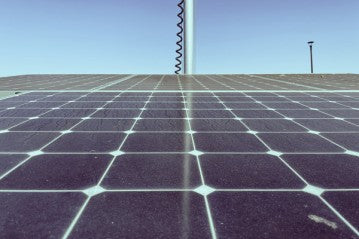
How Many Solar Batteries Do I Need for a Solar Inverter 8200w System?
As the demand for renewable energy solutions continues to rise, solar power systems have emerged as a popular choice for homeowners seeking cleaner and more sustainable sources of electricity. One essential component of a solar power system is the solar inverter, which converts the DC electricity generated by solar panels into AC electricity suitable for powering household appliances.
To ensure uninterrupted power supply, solar batteries play a crucial role in storing excess energy for use during cloudy days or at night. In this article, we will explore the considerations and factors involved in determining the number of solar batteries needed for a solar inverter 8200W system.
1. What are the batteries in solar inverter 8200W for?
Solar batteries in a solar inverter 8200W system serve as energy storage units that store excess electricity generated by solar panels during periods of high solar energy production. These batteries allow homeowners to utilize stored energy when the sun isn't shining, such as during nighttime or cloudy days. By utilizing solar batteries, homeowners can reduce their reliance on the grid and maximize their solar power system's efficiency.
2. Can a solar inverter 8200W power a house?
The power capacity of a solar inverter is crucial in determining whether it can effectively power a house. An 8200W solar inverter is a relatively robust system and can typically handle the power needs of a small to medium-sized house. However, it is important to consider the household's energy consumption patterns, the number of electrical appliances, and the overall electricity demand to ensure the solar inverter's capacity aligns with the house's requirements.
Our 8200 Watt Hybrid MPPT Solar Charger Inverter is a multi-function inverter/charger, combining functions of inverters,solar charger and battery charger to offer uninterruptible power support with portable size. It can perfectly solve the electricity needs of small and medium-sized houses.
3. How many AC can an 8.2kW solar inverter run?
The number of air conditioning (AC) units a solar inverter 8.2kW can run depends on several factors, such as the power requirements of the AC units and the overall power capacity of the solar inverter. AC units consume a significant amount of power, and their operation can result in high energy demands. As a general guideline, a single 8.2kW solar inverter may be able to power one or two standard AC units, depending on their power ratings and the available surplus energy from the solar panels. However, it is crucial to consult with a solar energy professional to accurately assess the specific requirements and design a system that meets your needs.
4. How many batteries for a solar inverter 8.2kW?
Determining the number of solar batteries needed for a solar inverter 8.2kW system involves considering various factors, including the desired battery capacity, energy requirements, and the average daily energy consumption of the household. It is important to note that battery capacity is typically measured in kilowatt-hours (kWh).
A battery with a capacity of 100Ah can store 1200W of electricity, which is enough to power a 100W light bulb for 12 hours. To meet a nightly consumption of 2.4kWh, it is recommended to install two 100Ah batteries (12V). However, it's important to note that discharging batteries beyond 70%-50% is not recommended. Thus, two 100Ah batteries will reserve 1700Wh when discharged at 70%. It's worth noting that when high currents are drawn, the voltage and capacity of the battery decrease.
In comparison, large inverters are suitable for emergency purposes, while small-sized battery backups are not as powerful. For a ECGSOLAX 48V solar inverter with a power output of 8200W, a 48V 200Ah solar battery is required.
5. Conclusion
In conclusion, solar batteries are an integral part of a solar inverter 8200W system, enabling homeowners to store excess energy and utilize it when needed. By carefully considering factors such as energy requirements and battery capacity, homeowners can determine the appropriate number of batteries for their specific needs, ensuring efficient and reliable energy storage. Embracing solar power and incorporating solar batteries not only promotes sustainability but also provides long-term cost savings and energy independence for homeowners.



0 Kommentare